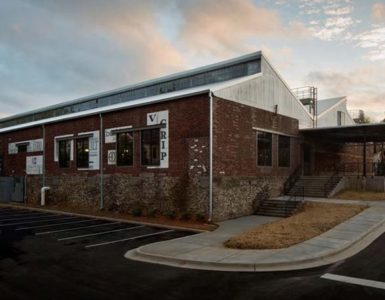Clyde’s family’s lakehouse changes slowly, almost imperceptably, from year to year. This year, a fresh coat of paint makes the cabin look scrubbed and dapper. Larger cabins — massive brick homes, really — now dot the perimeter of the lake, their multi-level decks and A-frame rooftops peeking through the trees. Two months ago, workers cleared the water’s edge of stumps, undergrowth, and tangled clumps of kudzu; today, though the water remains muddy, the lake itself looks pristine.
Each year, the cast of characters attending the Fourth of July festivities also changes. A core group returns again and again: Clyde’s parents, Clyde, his sister, her husband, the nephews, Clyde’s grandmother, me. Others come and go, appearing one year and vanishing the next, only to reappear the following year: the local Methodist preacher, a set of cousins from Jackson, the architect son of local friends, Clyde’s father’s sister and her grandchildren, neighbors and friends from across the lake.
Five years ago, our crowd included two stooped, older ladies. One of them — at 102 years old — rode around the lake in the motorboat, cackling at Walter’s antics. One year, Clyde and I crossed the lake to spend a lazy afternoon getting reintroduced to one of Clyde’s childhood friends and his new partner: a ribald, muscular exotic dancer who hugged everyone too tightly and insisted on reading naughty double meanings into the most innocent of comments. As recently as last year, Dixie Dawg streaked down the hill the to pier, plunged in, and swam after the boat as though chasing a car.
The old women have passed away. So has the childhood friend. Dixie, too.
This year, John, Jeri, Phil, and Thomas all fit comfortably into our July 4th routine. John and Thomas take dips in the muddy lake, paddling around on floats in the brown water. Jeri integrates herself quickly into the porch crowd, swapping stories. Phil takes to the swing, exercising his incredible gift for making conversation: asking good questions, making wry comments, bursting with laughter.
We go on walks. We eat too much fried chicken. We stand under the trees near Butch’s cabin, watching the young boys launch fireworks into the evening sky. We crane our necks upward, cringing at the sharp hiss of take-off, then oohing and aahing at the bright blossoms of light and the kettle-drum thunderclap after each detonation.
Another Fourth has come and gone. And this year, without really knowing why, I’m especially aware of how fragile these moments are. I don’t mean to be melancholy or depressed — I certainly don’t feel that way — but I find myself lingering, as long as possible, in each moment of the day … savoring it, hanging on, letting go with reluctance.
The nephews — once squeaky kids — are lanky young men. The grandmother, once spry, allows herself to be led to the car at the end of the day. When I first came here, I was twenty-eight and dizzy with new love; in two weeks, I’ll be thirty-nine (and proud of the fact that, when I look at Clyde, my heart still flip-flops).
One day, our Fourth of July will not be spent on the banks of a muddy lake, eating chicken fried by Clyde’s mother and watching the nephews launch fireworks from Butch’s pier.
Peyton lights The Grand Finale: a huge, platter-sized bundle of brightly-colored bomb casings. Sparks fly in all directions. Red and gold spheres burst into being just above the treetops. Multiple reports shake the air. After the explosions, red embers and bits of litter rain down through the pines.
I move closer to Clyde, put an arm around his waist, hold him close, and watch the skies.


Add comment